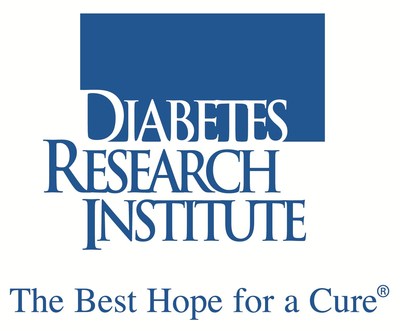|
11.07.2018 21:13:00
|
Diabetes Research Institute Launches New Clinical Trial to Explore Effects of Omega-3 Fatty Acids and Vitamin D in Type 1 Diabetes
MIAMI, July 11, 2018 /PRNewswire-USNewswire/ -- Scientists from the Diabetes Research Institute (DRI) at the University of Miami Miller School of Medicine today announced the launch of a new clinical trial that will assess the impact of high-dose omega-3 fatty acids and vitamin D supplementation on halting the progression of type 1 diabetes (T1D). The DRI has received FDA IND clearance to proceed with the Phase I/IIa trial, named the POSEIDON Study (Pilot study of Omega-3 and Vitamin D High Doses in T1D), to compare the effects of the proposed intervention in children and adults newly diagnosed and in those with longer-standing T1D to evaluate any benefit of early and late interventions. (Watch video: DiabetesResearch.org/DRItv)

Several scientific reports have suggested that the use of high-dose omega-3 and vitamin D, both of which have known anti-inflammatory and immunomodulatory properties, may offer a potential beneficial effect on autoimmune conditions, like type 1 diabetes. DRI researchers hypothesize that the treatment may delay or forestall the disease.
"My impetus for starting this study is to determine if modulating inflammation and immunity could halt, or at least delay, the progression of type 1 diabetes. Inflammation may be one of the triggers for autoimmunity that leads to the onset of the disease, but also has an effect on insulin resistance and, therefore, islet dysfunction," said Camillo Ricordi, M.D., study sponsor and Director of the Diabetes Research Institute at the Miller School of Medicine. "Results from our recent case studies examining the role of omega-3/vitamin D in preserving beta cell function in three pediatric subjects with type 1 diabetes warrant further investigation of this potential therapeutic strategy," continued Dr. Ricordi, referring to his recent findings in collaboration with Italian centers in Rome and Novara, including those published in European Review for Medical and Pharmacological Sciences.
The DRI plans to enroll 56 adults and children in the two-arm, open-label study. The investigators will compare children and adults with type 1 diabetes, both newly diagnosed and those more than six months post-diagnosis, who take either vitamin D alone or in combination with omega-3 fatty acids. The participants will be treated for one year, followed by a one-year observation period to measure any long-term effect on blood sugar control, increase in endogenous insulin production, and other outcomes.
Participants will be randomized to either 25-hydroxyvitamin D (cholecalciferol) alone, or in combination with ultra-refined omega-3 EPA/DHA derived from fish oil. Although initial dosing will be based on factors like age and body weight, investigators will monitor and adjust vitamin D dosing every four months. They will also adjust the omega-3 fatty acids dosage based on monthly monitoring of the ratio of arachidonic acid to eicosapentaenoic acid (AA/EPA).
A higher AA/EPA ratio is considered detrimental because AA is thought to promote inflammation and decrease the regulatory cells that could protect against autoimmunity, whereas EPA can be protective. More EPA could improve other conditions where inflammation plays a key role.
"Reversing autoimmunity could be beneficial well beyond subjects with type 1 diabetes. In fact, similar strategies should be tested in other autoimmune diseases like Crohn's, rheumatoid arthritis and lupus erythematous," Dr. Ricordi said.
All participants will receive standard diabetes treatment with insulin and dietary control.
"If combination omega-3 and vitamin D therapy is able to delay progression or halt autoimmunity in type 1 diabetes, this is expected to result in retention of insulin secretion, minimal use of exogenous insulin, and improved metabolic control thus minimizing the risks associated with unstable blood glucose levels," Dr. Ricordi said.
About the Diabetes Research Institute
The Diabetes Research Institute at the University of Miami Miller School of Medicine leads the world in cure-focused research. As the largest and most comprehensive research center dedicated to curing diabetes, the DRI is aggressively working to develop a biological cure by restoring natural insulin production and normalizing blood sugar levels without imposing other risks. Researchers have already shown that transplanted islet cells allow patients to live without the need for insulin therapy. Some study participants have maintained insulin independence for more than 10 years. The DRI is now building upon these promising outcomes by developing a DRI BioHub, a bioengineered "mini organ" that mimics the native pancreas. While various BioHub platforms are being tested in preclinical and clinical studies, the DRI is also developing strategies to eliminate the need for anti-rejection drugs and reset the immune system to block autoimmunity. For more information, please visit DiabetesResearch.org or call 800-321-3437.
![]() View original content with multimedia:http://www.prnewswire.com/news-releases/diabetes-research-institute-launches-new-clinical-trial-to-explore-effects-of-omega-3-fatty-acids-and-vitamin-d-in-type-1-diabetes-300679659.html
View original content with multimedia:http://www.prnewswire.com/news-releases/diabetes-research-institute-launches-new-clinical-trial-to-explore-effects-of-omega-3-fatty-acids-and-vitamin-d-in-type-1-diabetes-300679659.html
SOURCE Diabetes Research Institute
 Der finanzen.at Ratgeber für Aktien!
Der finanzen.at Ratgeber für Aktien!
Wenn Sie mehr über das Thema Aktien erfahren wollen, finden Sie in unserem Ratgeber viele interessante Artikel dazu!
Jetzt informieren!